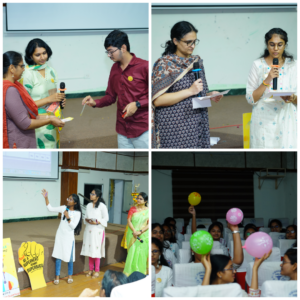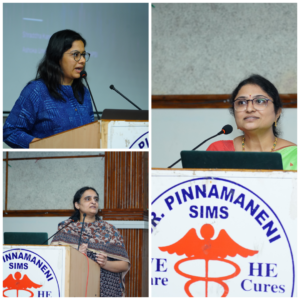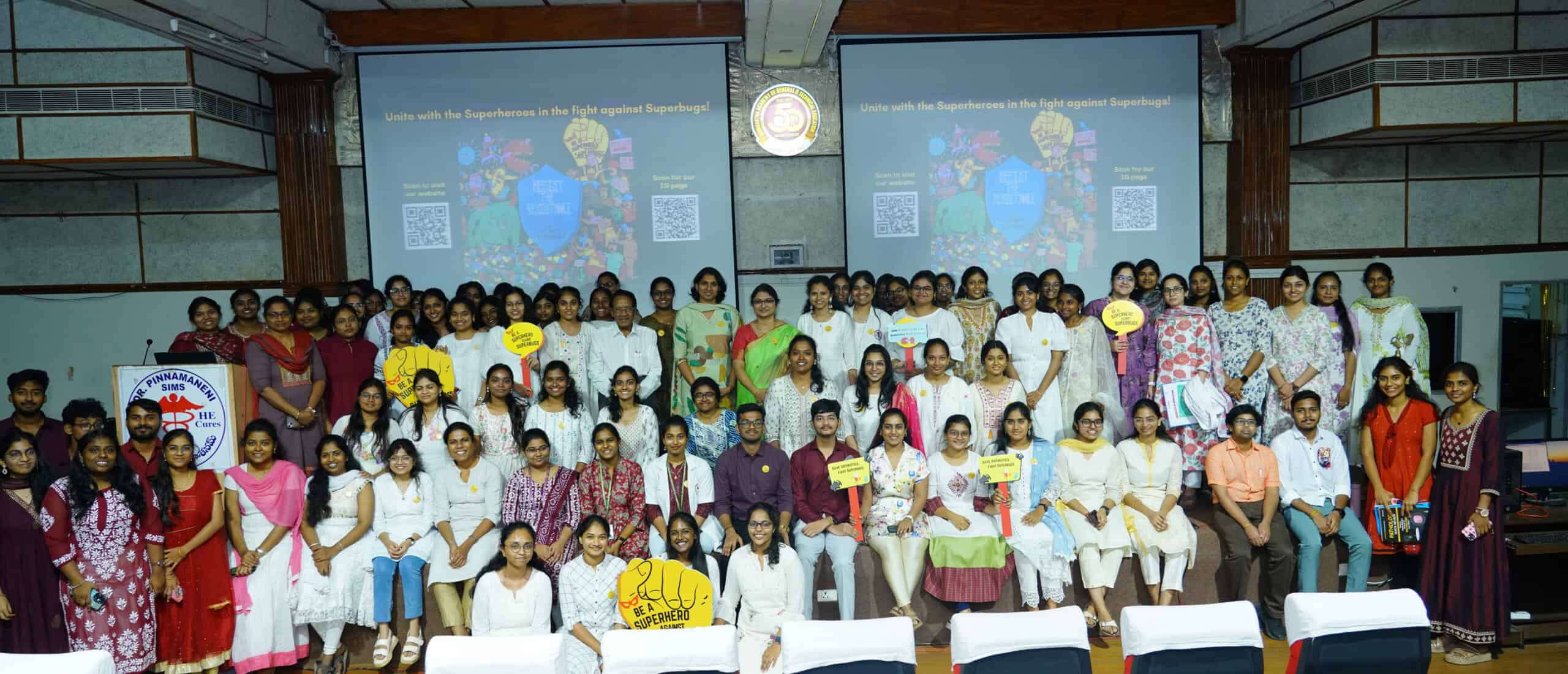The AMR Frontline Workshop held at Dr. Pinnamaneni Siddhartha Institute of Medical Sciences and Research Foundation, Vijayawada on June 6 2025, was an insightful and action-oriented event tailored for medical students. The workshop aimed to enhance awareness, understanding, and commitment to combat antimicrobial resistance (AMR)—a mounting global health threat.
The event began with a warm welcome and a fun icebreaker activity, Taboo – AMR Edition, setting an interactive tone for the day. Students actively participated in hands-on learning activities such as Code Red – Prescription Challenge Hunt, Kahoot Quiz, and Battling Bugs – Infection Prevention and Control Challenge, which reinforced key AMR concepts in engaging formats.
Dr. Shraddha Karve (Ashoka University) emphasized the mechanisms of antibiotic resistance, including vertical transmission, and highlighted the danger of slipping into a post-antibiotic era reminiscent of pre-antibiotic wartime medicine. She advocated for robust surveillance systems and introduced the One Health approach, noting that wastewater surveillance serves as an early indicator for emerging infectious threats.
Dr. Sivaranjani Santhosh (Magna Centres, Hyderabad) led a dynamic, case-based session that shed light on practical prescribing practices and common pitfalls. She underscored the importance of clear prescriptions, judicious use of antibiotics, and the need to combat irrational drug combinations, especially in dermatology. Her session also included discussions on ORS misuse, diagnostic stewardship, and hands-on activities that challenged students to think critically and act responsibly.
Dr. Srivalli Bhagavathulla (Blueflower Children’s Hospital and Diagnostics, Vijayawada) delivered a compelling talk on the “butterfly effect” in AMR—demonstrating how small, individual actions can create ripple effects in global resistance trends. Her session explored intrinsic vs. acquired resistance, IPC (Infection Prevention and Control) as the first line of defense, and the critical role of multidisciplinary stewardship.
The workshop concluded with a strong message: by becoming more aware and responsible, every future doctor can contribute to the solution—not the problem—of AMR. This workshop reaffirmed the role of informed, active stewardship in protecting the efficacy of life-saving antimicrobials.

